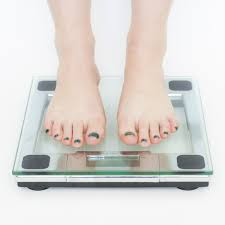This question was asked by me to the Strokefocus.net Forum and the answers come from my researching Post Stroke Fatigue. I believe you will find this information useful. So here goes:
Dear Me:
I don’t want to take a nap. I need to take a nap. Why is that so?
Need, Not Want
Dear Need, Not Want:
In the world of acronyms, it’s called PSF, or Post-Stroke Fatigue. PSF is a given post-stroke. So what is the solution? Knowing that you need a nap, there are some suggestions on management. Follow along and track the 1) how 2) who, and 3) what respectively in these 3 recent studies.
The How
In the Chinese Journal of Physical Medicine and Rehabilitation, Yan et al wrote:
Issue: How you breathe makes a difference.
Findings: “Diaphragm training can significantly improve motor function and the daily life of stroke survivors. The mechanism may be related to improved respiratory function and decreased the severity of fatigue.”
Translated from medical jargon, that means you might take shorter naps, or even a 15-minute power nap, if you breathe the correct way. I took an armchair yoga class several times and each time, the instructor went over breathing: a count of 4 breaths in (inhalation), a count of 6 breaths out (exhalations). This breathing exercise is good for other things, like alone time for meditation and frustration moments. I try to do that breathing pattern all the time, and when I forget, I know, so I get right back on track.
Issue: Confirmation of link between FMS (Functional Movement Systems) and disability and depression
Findings: "Post-stroke fatigue was associated with lower limb mobility, while post-stroke depressive symptoms were associated with cognitive performance."
Findings: "The current results underscore the importance of recognizing fatigue clinically, and the need to understand the underlying pathophysiology. Its importance is also highlighted by a high prevalence and persistence, remaining elevated in one study at 6-year follow-up."
In Lenus, The Irish Health Repository, Khan and Delargy found the following:
Issue: Rehabilitation can be severely affected by PSF
Findings: “Post-stroke fatigue is a frequently reported symptom by stroke survivors undergoing rehabilitation. This cross-sectional observational study was undertaken in a rehabilitation facility to look at its prevalence and relationship with various variables like personal factors, type of stroke, social context, hemispheric involvement on CT scan and mobility status. The results showed that PSF was present in 83% (25 out of 30) of the patients included in the study.”
Predictable, for sure. But when the medical researchers say it, you REALLY believe it. Please show this article to your family and friends if they say something negative like, “Get up already” or “Stop being lazy.” PSF is a real thing.
Brought to you by Strokefocus and one of its associations, Northwest Brain Network



